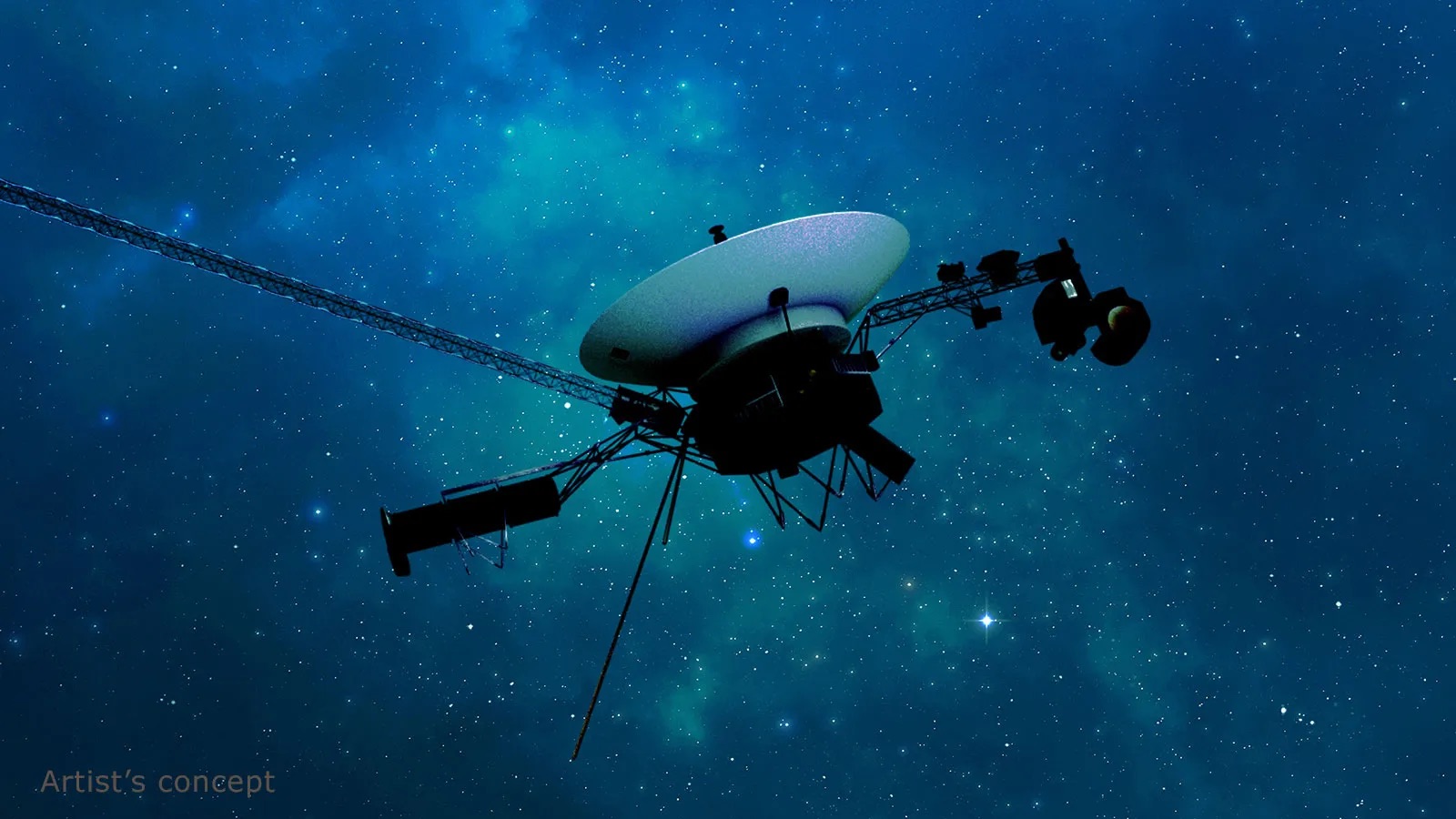In terms of discovery and our understanding of our solar system/galaxy, Voyager is clearly more important. But it's impossible to overstate the emotional/psychological/inspirational impact that the Apollo program had. We put people on the ****ing moon, for crying out loud, and it spurred us deeper into space exploration. Really feels like a six of one, half dozen of the other situation.Both programs were huge successes. I’m not sure how to rate one against the other.
No forums found...
Site Related
Iowa State
College Sports
General - Non ISU
CF Archive
Install the app
Voyager 1 is likely dead
- Thread starter UnCytely
- Start date
No forums found...
Site Related
Iowa State
College Sports
General - Non ISU
CF Archive
You are using an out of date browser. It may not display this or other websites correctly.
You should upgrade or use an alternative browser.
You should upgrade or use an alternative browser.
If that dude believes space doesn't exist he clearly has spent too much time in the Tokyo subway.Space doesn't exist.

2024 NFL Combine: Texas Tech's Tyler Owens says he doesn't 'believe in space' and 'other planets'
Owens' thoughts are certainly out of this worldwww.cbssports.com

NASA hasn't said it officially, but the part of the spacecraft that functions most like a "computer" (it is too old to have a "CPU") is still sending meaningless data, and months after this started happening, NASA's engineers have not been able to fix it.
Part of the problem is that this is the first still-going mission where every single one of the original engineers who designed the mission has died. This guy, in the video below, coined an excellent term, that I believe should catch on, called "spacecraft archeology". That is basically what NASA's current engineers have had to engage in, because they have literally nobody to talk to who was involved in designing the mission.
BTW, this guy's videos are excellent, if you can get past his deep accent. He is very underrated as a YouTube science content creator.
Hopefully NASA learns from this. They should have younger engineers become part of a team even as a secondary responsibility later on in a mission's life. It won't be as useful as the guys who were there from day 1, but could help to have guys who have had years of experience even if not from the start. This may become even more important as they come up with ways to extend mission life well beyond human life in the century or more time range.
Agreed. Contrasting them requires supposing that their missions are generalized to "learning about the universe". We know so little that everything outside our orbit is such an opportunity for dramatic expansion of our knowledge, especially in the Space Race era that launched these missions. Both are such incredible feats of human accomplishment it's hard to imagine a spectrum of importance where those two aren't complete outliers from things like the Hoover Dam or the Empire State building that are commonly cited.In terms of discovery and our understanding of our solar system/galaxy, Voyager is clearly more important. But it's impossible to overstate the emotional/psychological/inspirational impact that the Apollo program had. We put people on the ****ing moon, for crying out loud, and it spurred us deeper into space exploration. Really feels like a six of one, half dozen of the other situation.
As I think about this, having AI involved from the start now may help, but I shudder a bit as I think about that as isn't that exactly what was happening in the Star Trek movie with V'ger?Hopefully NASA learns from this. They should have younger engineers become part of a team even as a secondary responsibility later on in a mission's life. It won't be as useful as the guys who were there from day 1, but could help to have guys who have had years of experience even if not from the start. This may become even more important as they come up with ways to extend mission life well beyond human life in the century or more time range.
Maybe VGER is coming back to life:

 universemagazine.com
universemagazine.com

Voyager 1 shows signs of "recovery"
Voyager 1, located in interstellar space, has shown some signs of "recovery".
That’s a good point. I can see the same thing happen with New Horizons.Hopefully NASA learns from this. They should have younger engineers become part of a team even as a secondary responsibility later on in a mission's life. It won't be as useful as the guys who were there from day 1, but could help to have guys who have had years of experience even if not from the start. This may become even more important as they come up with ways to extend mission life well beyond human life in the century or more time range.
Aliens resuscitated it, clearly. If it starts heading back to Earth, watch The Signal on Netflix.
What is amazing to me is we built a craft an eternity ago in technological terms that is unbelievably still working (ish) and communicating back to Earth from unimaginable distances... but we still can't get a lander to hit feet-first on the moon.
Not trying to minimize the extreme amount of work and science to land something on the moon, just a recognition of how little space exploration has advanced over the past 50 years relative to other things.
What is amazing to me is we built a craft an eternity ago in technological terms that is unbelievably still working (ish) and communicating back to Earth from unimaginable distances... but we still can't get a lander to hit feet-first on the moon.
Not trying to minimize the extreme amount of work and science to land something on the moon, just a recognition of how little space exploration has advanced over the past 50 years relative to other things.
We did a better job landing feet first in 1969.Aliens resuscitated it, clearly. If it starts heading back to Earth, watch The Signal on Netflix.
What is amazing to me is we built a craft an eternity ago in technological terms that is unbelievably still working (ish) and communicating back to Earth from unimaginable distances... but we still can't get a lander to hit feet-first on the moon.
Not trying to minimize the extreme amount of work and science to land something on the moon, just a recognition of how little space exploration has advanced over the past 50 years relative to other things.
But it wasn't autonomous in 1969. A pilot can make decisions on the fly that a computer can't yet, and there is no way to remote pilot these things. Given it was a difficult spot to land terrain wise and they had some technical difficulties before landing it was a miracle it landed at all.We did a better job landing feet first in 1969.
It was actually both. on the first landing Neil Armstrong took the controls when he saw a boulder field not on previous maps. But i believe we landed unmanned craft on the moon before.But it wasn't autonomous in 1969. A pilot can make decisions on the fly that a computer can't yet, and there is no way to remote pilot these things. Given it was a difficult spot to land terrain wise and they had some technical difficulties before landing it was a miracle it landed at all.
Ranger7, 8 and 9 were the first u.s. uncrewed landings that immediately proceeded Apollo 11.But it wasn't autonomous in 1969. A pilot can make decisions on the fly that a computer can't yet, and there is no way to remote pilot these things. Given it was a difficult spot to land terrain wise and they had some technical difficulties before landing it was a miracle it landed at all.
Fair enough. I still feel they accomplished something impressive landing it at all on first attempt considering the shoestring budget compared to the nearly limitless budget and attempts they had back then. There were a LOT of failures in the lunar program.Ranger7, 8 and 9 were the first u.s. uncrewed landings that immediately proceeded Apollo 11.
I'm envisioning likes from people that still make toast in one of these babies...What is amazing to me is we built a craft an eternity ago in technological terms that is unbelievably still working (ish) and communicating back to Earth from unimaginable distances... but we still can't get a lander to hit feet-first on the moon.

It's not going to get any better until they can figure out how to travel faster than they currently can. It took Voyager I something like 35 years to just get out of the solar system.Not trying to minimize the extreme amount of work and science to land something on the moon, just a recognition of how little space exploration has advanced over the past 50 years relative to other things.
Fully agree. When you combine the fact that it takes such a huge portion of available energy/fuel just to get off the earth and the speed limitations of current technology/understanding, it's largely status quo with minimal iterative advances.It's not going to get any better until they can figure out how to travel faster than they currently can. It took Voyager I something like 35 years to just get out of the solar system.
The next big project is trying to build a space craft that travel close to the speed of light and travel to the nearest star, which is 4 light years away. the craft and instruments will have to be not much bigger than the molecular level. According to Astronomy magazine, we are closer to doing that than you think. Might be something we can do within 25 to 30 years. Basically they call it a space kite.
With the ability to launch from earth with conventional combustion (rocket booster) technology and then employ ion engines to continually accelerate (admittedly very slowly), a small craft mission that will take years to leave the solar system could be traveling at quite high rates of speed by the time it leaves the solar system.Fully agree. When you combine the fact that it takes such a huge portion of available energy/fuel just to get off the earth and the speed limitations of current technology/understanding, it's largely status quo with minimal iterative advances.


